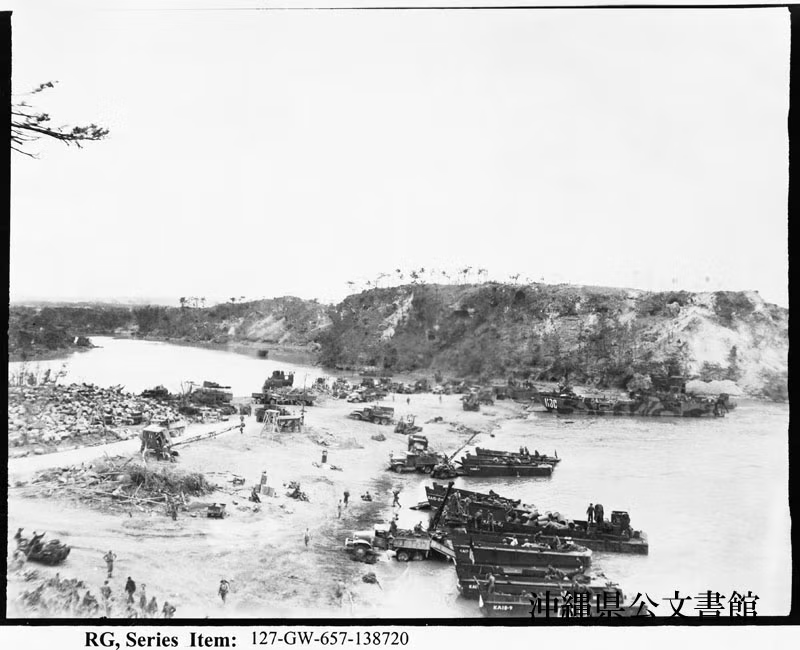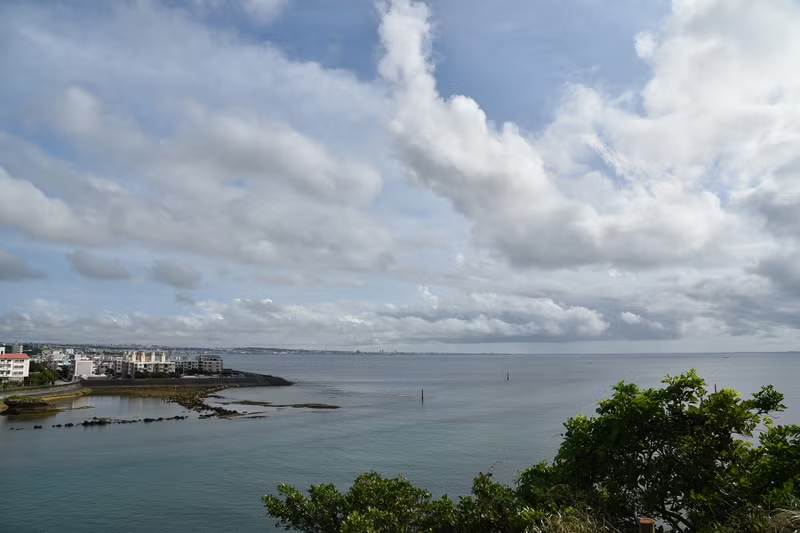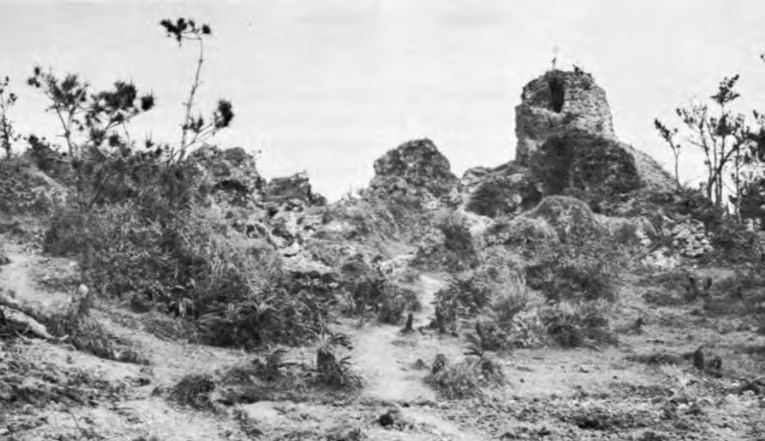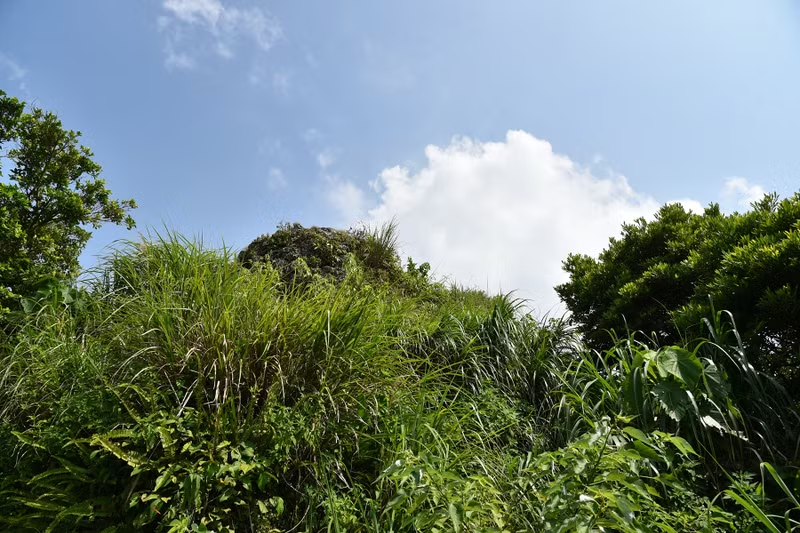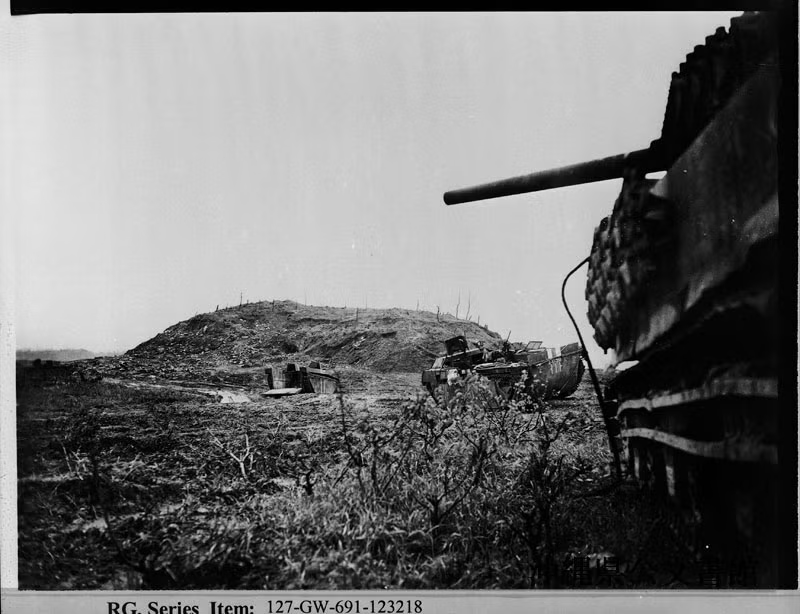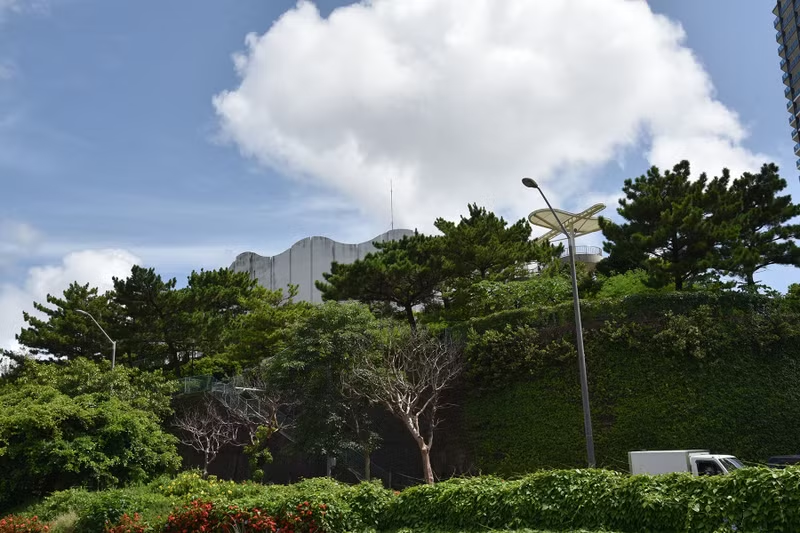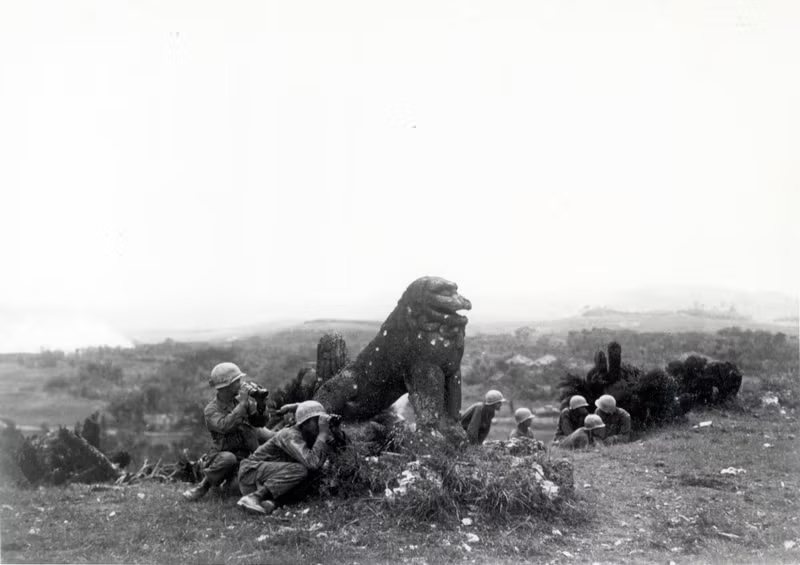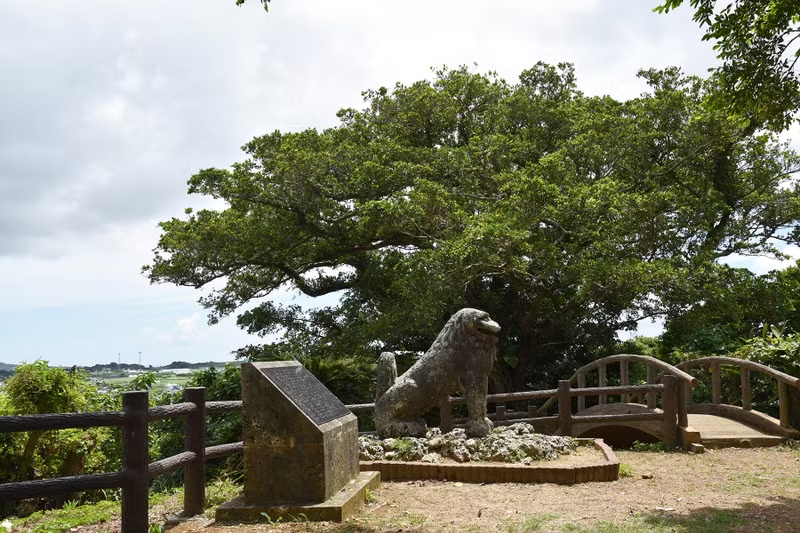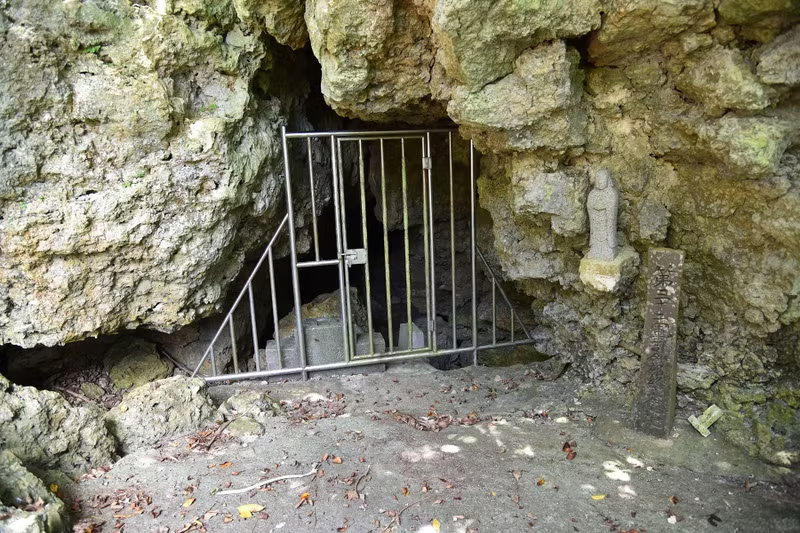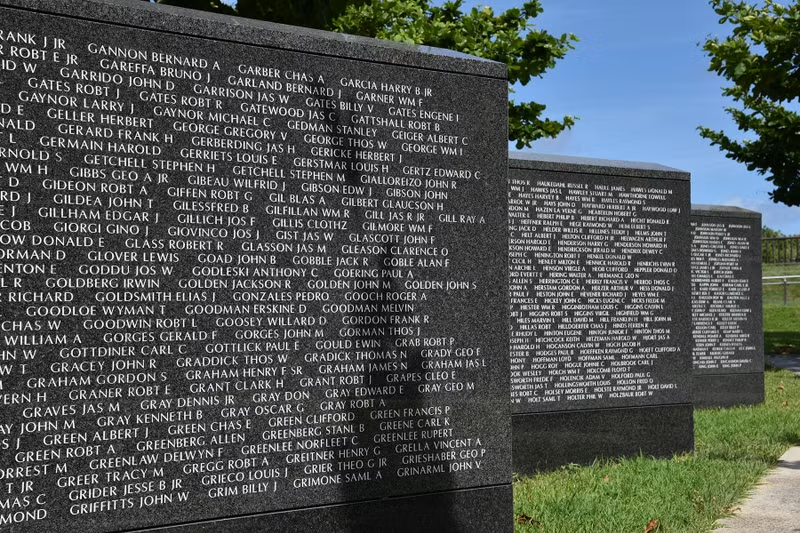Tracing the Front Line! - WWII Battle of Okinawa Tour
The Battle of Okinawa was one of the bloodiest ground warfare in WWII. When U.S. troops landed on Okinawa island on April 1, 1945, there was little counterattack contrary to their expectations. This was because the Japanese strategy was to build strong underground positions in the southern part of the island and turn the fight into an endurance contest. From this day, the 3 months of fierce battles embroiling citizens began. In this tour, we will trace the front line of the battle in 2 days.
Itinerary
This itinerary can be customized to meet your needs and preferences. Send me a message with your requests!
Meeting Point
At your hotel
Toguchi Beach - U.S. Military Landing Monument
On April 1, 1945, U.S. troops landed on the shore from Yomitan to Chatan to swiftly occupy Yomitan and Kadena airfield, which were the strategic foothold to air-raid mainland Japan. Since there was almost no counterattack, some Americans recorded that it was like a picnic and others thought it might be an April Fool's Day prank.
Kadena Michi-no-eki - Kadena Air Base
By the end of the L-Day, the landing parties completed the occupation of the destroyed Japanese airfield and started repair work. Since then, it has been used as the Kadena Airbase by the U.S. military.
Lunch
Let's enjoy "Taco-rice" which is a hybrid of Tacos, brought by American soldiers to Okinawa, and Rice, the Asian staple food, in the ex-Koza city.
The Pinnacle
The first severe battle took place over this outpost with underground positions on April 5. Japanese troops repelled the American assaults 8 times but retreated on April 6.
Kakazu Ridge
On April 8, American troops started an attack against a Japanese position of connected hills constructed underground. In the beginning, the U.S. military believed that they could occupy it in one day, but it continued for 16 days due to the Japanese severe resistance including a suicide bomb attack on tanks.
Hacksaw Ridge
After Kakazu ridge's occupation by the U.S., the front moved to the southern Maeda escarpment, a.k.a. Hacksaw ridge. Since its sheer cliff was considered an essential defense line for the Japanese military headquarters located in Shuri, the Japanese resistance from April 25 to May 6 was extremely fierce. The self-sacrificing service by a combat medic, Desmond Doss, at the battle is well-known and filmed in 2016.
Sugar Loaf Hill
The front line gradually moved southward. Sugar Loaf Hill was one of the underground positions to obstruct the intrusion of U.S. troops into the Okinawan capital city, Naha, and the headquarters of the Japanese imperial army, Shuri. A weeklong Japanese precise sniping and crossfire from 3 different positions started on May 12 and resulted in nearly 3000 casualties and over 1000 combat fatigue for the U.S. troops.
Your hotel
End of the first day's tour.
Your hotel
Beginning of the second day's tour
Shuri Castle - 32nd Army Headquarters Shelter
On May 22, the Japanese Army headquarters decided to retreat to the southern end of the island, where a lot of civilians were evacuated, to protract the battle and gain time to prepare for decisive fighting on mainland Japan. Due to the fierce bombardment for 2 months, precious buildings and artifacts of the Ryukyu kingdom, including Shuri castle, were destroyed and only burnt fields were left in the old capital.
Lunch
Let's enjoy Okinawan traditional cuisines such as soba (noodle) and Champuru (Okinawan-style stair fry).
Tomori Stone Lion - Mt. Yaese
After the transfer of the headquarters, a new battlefront was formed in the southern part of Okinawa island. Mt. Yaese was an important Japanese position to protect the new headquarters located in Mabuni. After a severe battle, Japanese troops stationed at Mt. Yaese were annihilated on June 14.
Memorial Monument of Lieutenant General Buckner
On June 18, the U.S. commander of the battle of Okinawa, Lieutenant General Buckner, was killed by Japanese fire at an outpost while observing the front.
Reimei Memorial Tower - The Headquarters Cave
On June 23, the Japanese commander of the battle of Okinawa, General Minoru Ushijima, committed suicide in the cave used as their headquarters after the last order to the remaining Japanese soldiers to continue fighting. Now, June 23 is a prefectural war memorial day in Okinawa, but actually, the battle was continued by soldiers that lost the systematic command until September 7.
Peace Memorial Park - The Cornerstone of Peace
To pray for eternal world peace, all the names who died during the Battle of Okinawa are inscribed on the Cornerstone of Peace regardless of their nationalities.
Peace Memorial Museum
You can deepen your understanding of the background history and the overall perspective of the Battle of Okinawa. The testimonies of the survivors are a must-see spot.
Ending Point
At your hotel
Want to personalize this tour?
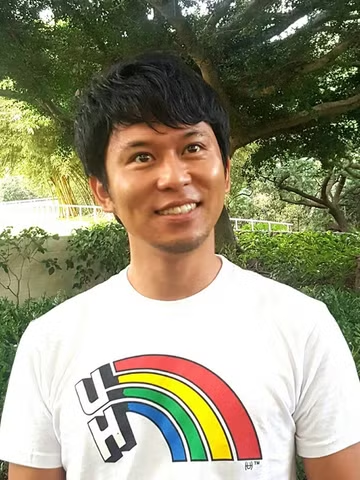
This tour can be customized to meet your needs and preferences. Click below to send me a message with your requests.
Inclusions & Exclusions
Guide fee
Transportation fee (you and the guide), Lunch, Entrance fee
Tour Important Information
By tracing the main frontline of the Battle of Okinawa from Yomitan on April 1 to Mabuni on June 23, you can experience the progress of the battle vicariously and understand what it was like realistically.
Please wear comfortable clothes and shoes because You need to walk the slopes. The entrance fee for the Peace Memorial Museum is 300 yen per person.
Important message from the supplier
In addition to day trips, I can also be your guide for several days in Okinawa and other parts of Japan. If you are interested, please let me know via message.
Cancellation Policy
- Free cancellation - 8 days prior to meeting time
- 50% Refund - 3 to 7 days prior to meeting time
- No Refund - Within 2 day(s) prior to meeting time
About Tour Guide Harry M.
Looking for a guide who truly knows Okinawa?
With 15 years of experience in the field of science education in both Okinawa and Hawaiʻi, I now work as a guide-interpreter and edutainer (educator + entertainer) based in Okinawa.
I use my educational background to create unique, engaging tours that help participants discover something new about Okinawa’s breathtaking natural beauty and rich cultural heritage.
From exploring Okinawa’s diverse ecosystems, both on land and in the sea, to experiencing the traditions of Karate and the enchanting sounds of Okinawan Sanshin music, I’m passionate about sharing the best of Okinawa with you.
If you’re ready for a tour that’s not only unforgettable but also filled with learning and discovery, let’s embark on this journey together!
(I also offer guided tours of the Mt. Fuji area, my hometown. Additional transportation fees apply.)
Guiding Fee (For up to 10 people):
- 4 hours: ¥30,000
- 6 hours: ¥35,000
- 8 hours: ¥40,000
Guiding with Car Transportation (For up to 3 people):
- Extra ¥10,000 (Includes gas, parking, and expressway fees)
Reviews
Luc L.
“Harry-San SAVED our trip!”
Our Karate tour in Okinawa was absolutely unforgettable, thanks to the outstanding guidance of Harry-San. From the start, he went above and beyond—when our flight was delayed, he kindly arranged to pick us up at the airport, which immediately put us at ease. Harry-San is incredibly knowledgeable about Okinawan Karate and its rich cultural and historical context. His deep passion for the art and his local connections made every site feel authentic and special. We learned so much more than we expected, and it was all presented in a way that was engaging, respectful, and meaningful. During the tour, I accidentally dropped and broke my phone. Harry-San was quick to offer help, even pointing me toward reliable local phone repair shops. It was such a small gesture, but one that made a big difference in a stressful moment—just another example of how thoughtful and supportive he was throughout the entire experience. On top of all this, Harry-San is simply a joy to be around—friendly, professional, and genuinely invested in making the tour memorable for everyone. If you're considering a Karate or cultural tour in Okinawa, I can’t recommend this experience—and especially Harry-San—highly enough
Kevin lorraine B.
“Harry is Fantastic!!!”
I had a very different request in that I lived on Okinawa in the late 1970’s and wanted to see if several places still existed. Harry went above and beyond in researching places and combined the visits to historical places to make a completely customized tour that my friends and I thoroughly enjoyed! Harry also was compassionate in dealing with this widow’s emotional reminiscences. Thank you so much Harry!!

Harry M.
Dear Kevin-san, Thank you very much for your kind and heartfelt review. It was truly an honor to accompany you on such a meaningful journey through Okinawa. I deeply appreciate the trust you placed in me to help revisit the places connected to your memories from the 1970s. I'm especially glad to hear that you and your friends enjoyed the customized tour and that it offered both discovery and reflection. Your words about my support during your emotional moments mean a great deal to me. It was a privilege to share in your story, and I am grateful for the opportunity to contribute in a small way to your meaningful return to Okinawa. Wishing you all the best, and please don’t hesitate to reach out if you ever return—I would be delighted to guide you again. Warm regards, Harry
Christen S.
“Fantastic Personalized Tour Created by Harry”
This is my second visit to Okinawa to conduct research on kariyushi wear and my second time with Harry as a tour guide. As usual, Harry was amazing. He was so detail oriented when creating a personalized tour for me. He asked such insightful questions, took the time to search out the best places for me to check out, made some great suggestions, and arranged everything! I am so grateful to Harry for this thoughtfulness. If anyone reading this is ever in doubt, do not hesitate to book Harry for your guide - you will not regret it!

Harry M.
Dear Christen-san, Thank you so much for your thoughtful review and for choosing me again—it was an honor to guide you for the second time. I truly appreciated the opportunity to support your research on kariyushi wear. Through the tour, I gained a deeper understanding of how Okinawan people view both Kariyushi and Aloha styles, which was very insightful for me as well. I hope our paths cross again on your next journey! —Harry
$556/ per group
More tours by Harry M.
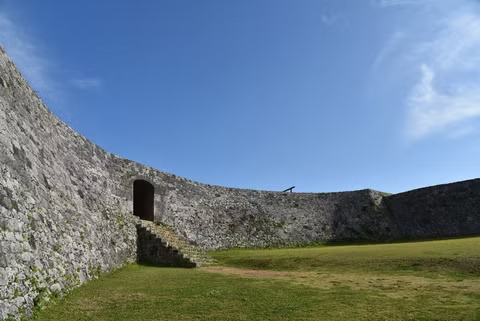
Deep Dive to Okinawa! - Edutainment Tour
Deep Dive to Okinawa! - Edutainment Tour
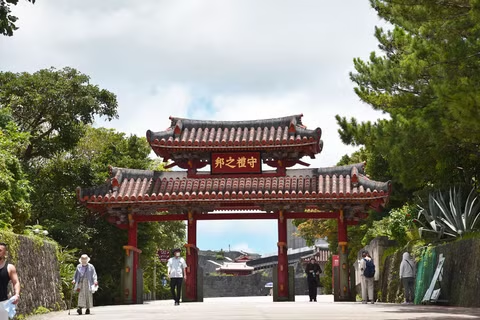
Unveil Wonders of Okinawa! - Interactive Virtual Tour
Unveil Wonders of Okinawa! - Interactive Virtual Tour
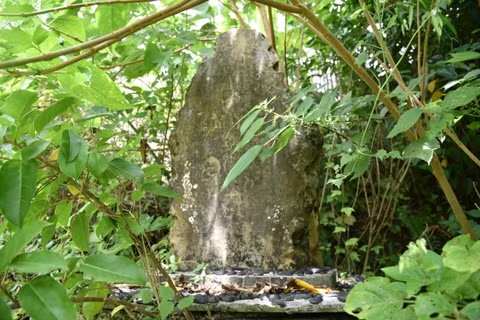
Journey to the Birthplace! - Karate Heritage Tour
Journey to the Birthplace! - Karate Heritage Tour
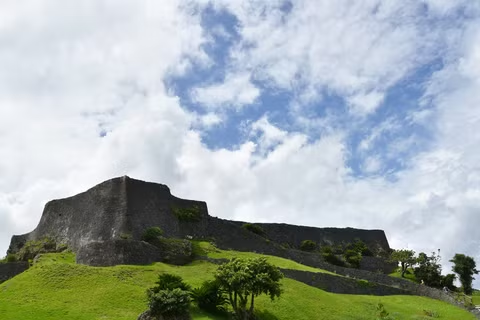
Ryukyu Castle Hopping! - Gosamaru vs Amawari
Ryukyu Castle Hopping! - Gosamaru vs Amawari
Other Popular Art, Culture, & Historical Tours in Okinawa Main Island

Deep Dive to Okinawa! - Edutainment Tour
Deep Dive to Okinawa! - Edutainment Tour


Journey to the Birthplace! - Karate Heritage Tour
Journey to the Birthplace! - Karate Heritage Tour


Ryukyu Castle Hopping! - Gosamaru vs Amawari
Ryukyu Castle Hopping! - Gosamaru vs Amawari

